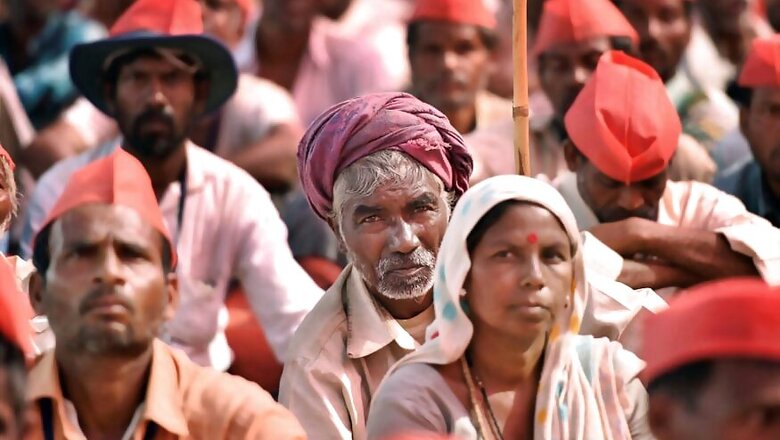
views
New Delhi: As a mark of protest against non-adherence to farm issues by state governments, thousands of farmers across eight states are resorting to barter system for their daily needs.
“During last year’s agitation, angry farmers had emptied milk tankers and thrown vegetables on the roads. This time, leaders of the Kisan Ekta Manch and the Kisan Maha Sangh, an umbrella body of 172 farmers’ bodies, are urging them to barter their produce,” said Aam Kisan Union chief Kedar Sirohi.
Farmers in Madhya Pradesh, Rajasthan, Uttar Pradesh, Maharashtra, Karnataka, Haryana, Punjab and Chhattisgarh have been told to stay at homes, stock their produce and consume it for their own use during the agitation and identify nearby villages where they can directly exchange perishable agricultural products for other goods or services.
“In order to create pressure on the market we are not going to sell it to the dealers. We asked them to go for barter so that our farmers are not impoverished further. It is simple; milk producers will exchange their goods with vegetable producers and so forth,” said Pushpendra Singh, local farm leader in Madhya Pradesh (MP).
Exchange of goods without involvement of currency is not new in India. Punjab farmer leader Inderjit Jaijee explained, “During farm protests in the 70’s, there was a similar movement launched where farmers stopped selling produce to markets and survived only through mutual brotherhood.”
Multiple orgainsers that News18 spoke to said farmers will not take to the roads this time. Instead, they will simply not supply milk and vegetables to the state's markets. City-dwellers can buy directly from the villages if they so choose.
Among their major demands are one-time loan waiver, higher minimum support prices and higher prices for their produce in general.
Over a 100 outfits claiming to be farmers’ organisations had met at Bhopal’s Gandhi Ashramin Wardha on May 11. The meeting was convened by Rashtriya Kisan Mahasangh — an umbrella organisation of all the outfits. Modalities of the 10-day agitation were discussed during the meet.
Swabhiman Shetkari Sangathana, which took part in the Maharashtra agitation for loan waiver, is staying away, questioning the credibility of these organisations. RSS-backed Bhartiya Kisan Sangh (BKS) has also decided to not participate in the protests.
The history of barter dates all the way back to 6000 BC. Introduced by Mesopotamia tribes, bartering was adopted by Phoenicians. Phoenicians bartered goods to those located in various other cities across oceans.


















Comments
0 comment